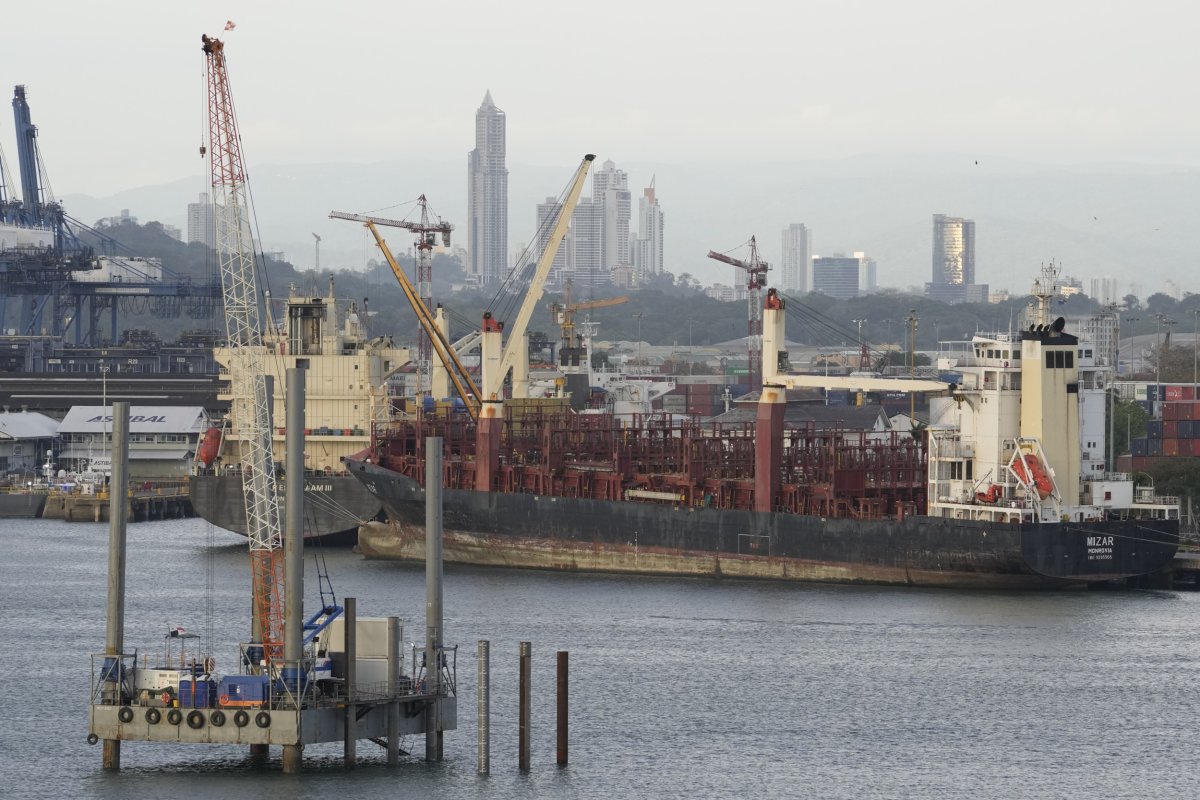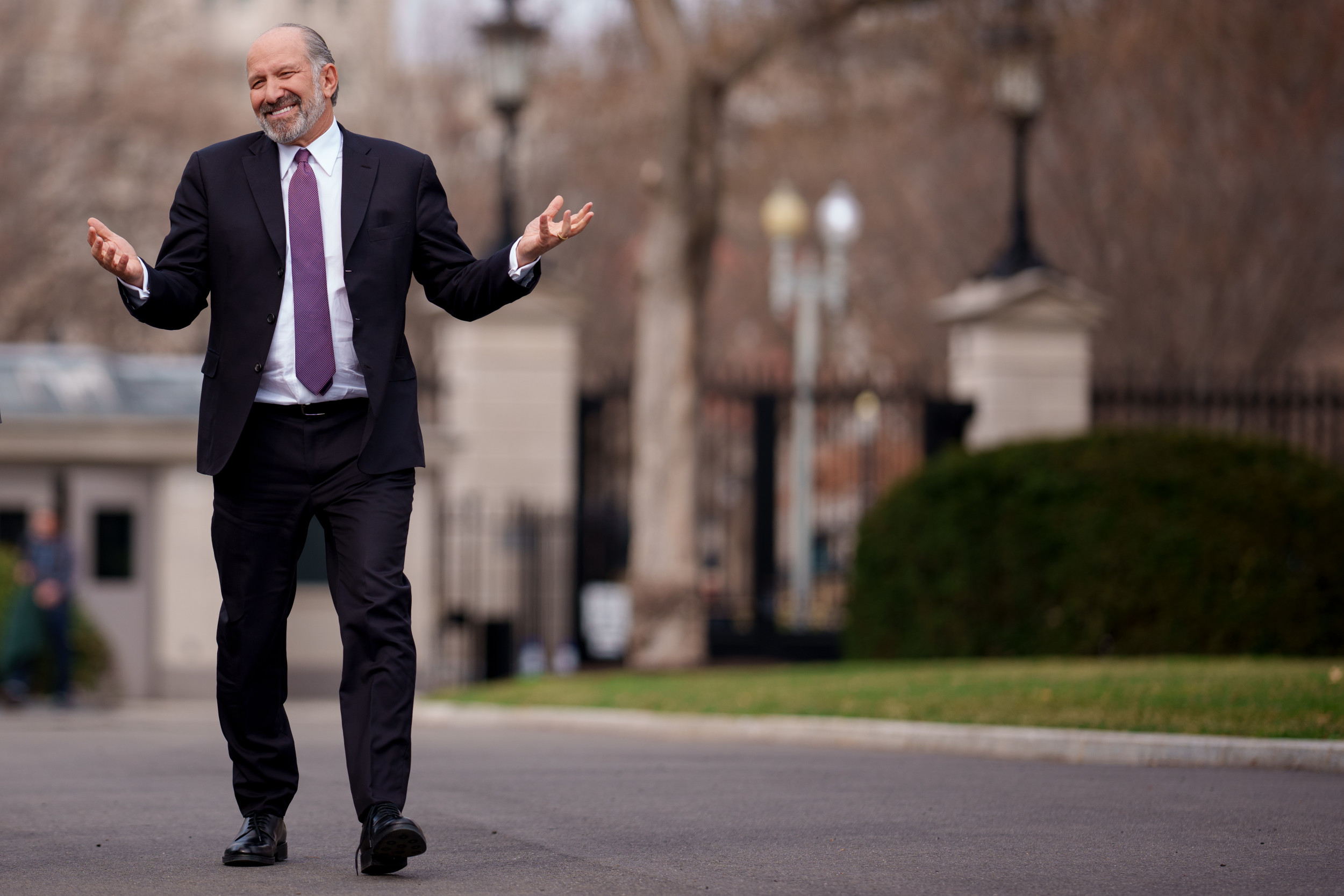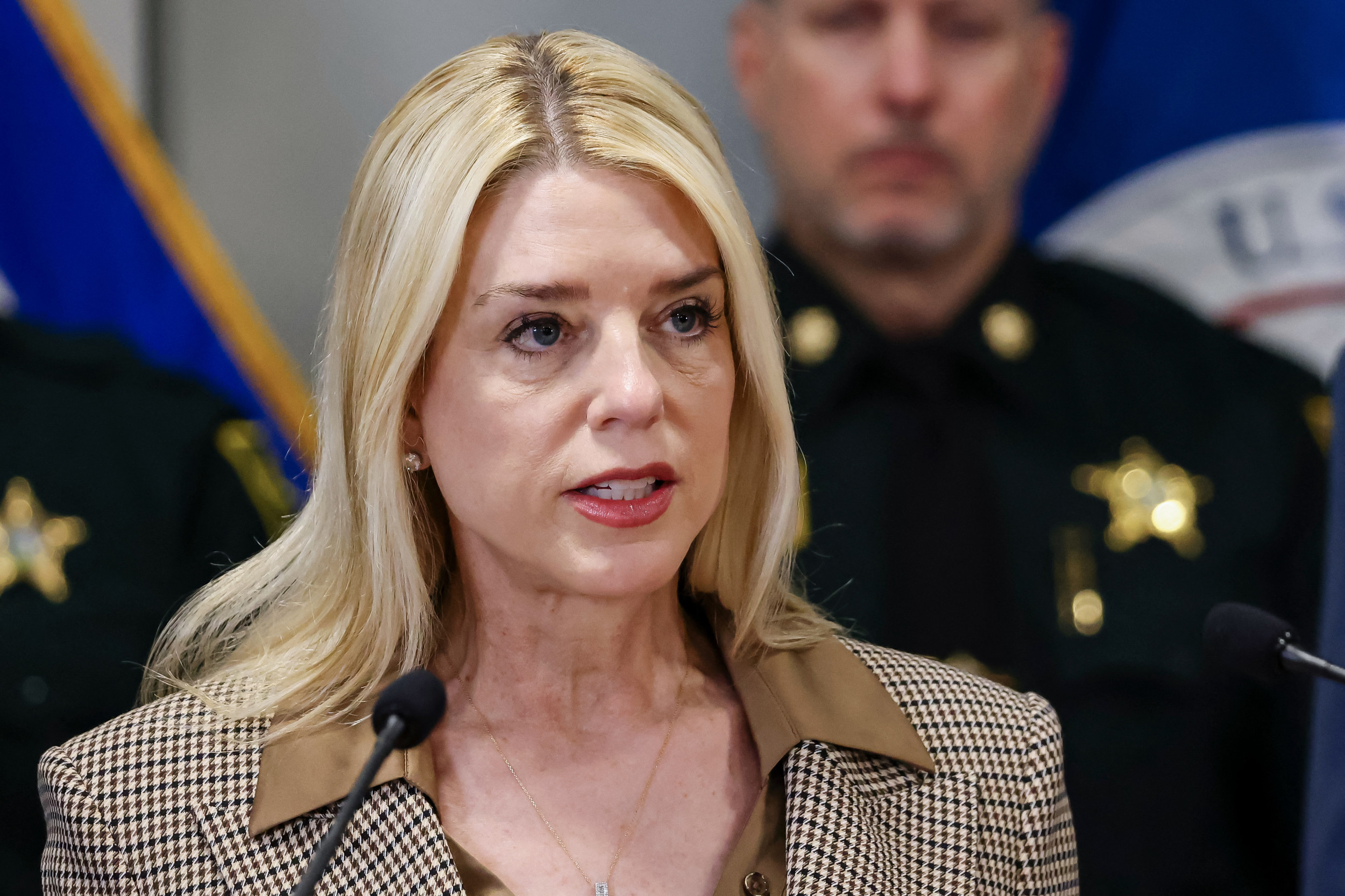A Chinese conglomerate's planned sale of dozens of international ports to a U.S.-linked consortium has drawn fury from Beijing over the possible loss of critical infrastructure, including those at either end of the Panama Canal—and the deal could now be in jeopardy.
A map created by Newsweek shows the 43 facilities at stake, with some analysts saying China views the sale as a loss of strategic influence and a potentially serious blow to its geo-economic Belt and Road Initiative.
A Contentious Deal
In early March, Hong Kong-based CK Hutchison agreed to sell most of its global ports business—valued at $22.8 billion—to a consortium including U.S.-based asset management giant BlackRock. Among the assets are terminals on either side of the Panama Canal, a strategic maritime choke point that handles about 5 percent of global seaborne trade. Hutchison Ports says it handles about 10 percent of global containerized marine cargo trade.
The move came amid U.S. President Donald Trump's continued claims that China controls the canal—a charge denied by both Beijing and Panama. He also accused the Latin American nation of levying unfair passage fees on American vessels.
The deal's announcement has triggered a furious backlash from the Chinese government, and state-backed media in Hong Kong blasted the sale as a betrayal.
In a series of articles, the pro-Beijing newspaper Ta Kung Pao called it a "hegemonic act" by the United States aimed at constraining China's national interests under the guise of trade. Indicating top-level support, the commentaries were also published on the website of Beijing's government office in Hong Kong.
In response, China's State Administration for Market Regulation has launched an anti-trust review of the multibillion-dollar deal. Chinese authorities also reportedly ordered state-owned enterprises to pause any new business dealings linked to CK Hutchison founder Li Ka-shing, 96, and his family. Officials in Panama confirmed an audit of Hutchison's concessions was in the works.
Definitive documentation for the transfer of the two Panama port operations was expected to be signed by April 2, but sources told Hong Kong's South China Morning Post newspaper this will no longer happen, citing "obvious reasons" and political sensitivities. However, talks remain ongoing under a 145-day exclusivity period.
Beijing Hits Pause Button
While Beijing's regulator cited standard anti-trust grounds for the review, China watchers said the rationale did not hold up. Economist George Magnus, an associate at the University of Oxford's China Centre, called the explanation "spurious."

"Beijing's pique about the sale suggests that its concerns have next to nothing to do with business, notwithstanding protestations that the planned sale merits anti-monopoly and anti-competitive investigations," Magnus told Newsweek. "Presumably these same concerns would have applied to CKH's ownership too, but on this, Beijing had nothing to say."
Magnus said that China's anti-trust authority had no legal jurisdiction outside of the mainland—and that the real message was geopolitical.
"This should certainly be taken on board by all firms doing business in and with China as a warning about the ultimate political and national security interests of the Chinese government and the Chinese Communist Party," he said.
Whereas foreign firms once justified operations in China on the basis of market access and growth, Magnus said "in a more geopolitically adversarial world...foreign firms need to be guided more and more by things other than 'a growing market' in China."
Still, practical difficulties and sunk investments mean there will be no immediate exodus of foreign business from the Chinese market, he said.
Strategic Stakes
The ports in question are among 43 facilities across 23 countries in CK Hutchison's global ports business, according to the original March 4 sale announcement. The firm has operated terminals adjacent to the Panama Canal since 1998 and secured a 25-year concession renewal in 2021.
Trump administration officials have said reducing Chinese presence at the canal is critical to protecting U.S. security and trade interests. "It's also no surprise that the CCP is upset at this acquisition, which will reduce their control over the Panama Canal area," U.S. State Department spokesperson Tammy Bruce told reporters Friday.
Beijing, analysts warn, is likely to raise the cost of exiting the Chinese market for any company considering a sale to American buyers. Even if the Hutchison-BlackRock deal proceeds, they say it will be under the shadow of political and regulatory retaliation from China.

In addition, the hard security risks arising from companies susceptible to political pressure from China were clear, said Evan Ellies, a research professor of Latin American studies at the Strategic Studies Institute of the U.S. Army War College. A flashpoint is the Western Pacific and in particular Taiwan, which Beijing menaces.
"In any war intended to crush the autonomy of Taiwan, it would be a race against time," Ellis said. America's "Indo-Pacific assets and those flown in could help, but heavy units, many smaller warships, and ammunition would have to come via military logistics ships—through the Panama Canal," he said.
"Closure of the canal, even for two or three days, could determine whether the U.S. can hold off a [People's Liberation Army] victory or whether the PLA consolidates control and presents the West with a fait accompli. That threat is poorly understood—even by top U.S. officials. China doesn't need to control the canal's locks. Like defending against a terror attack, it's about physical access, technical knowledge, and relationships," Evans added.
Ellis said the risks from Chinese commercial logistics presence in the Western Hemisphere, in wartime as well as peacetime, go far beyond Panama.
"It's the responsibility of the PLA, like any capable military force, to think about how it would fight its logical adversary—the United States," he said. "The Western Hemisphere might not be the primary theater of such a conflict, but the PLA would do everything within its power, including leveraging commercial facilities and assets around the world…to put the U.S. homeland at risk and disrupt deployment, sustainment flows, and combat capabilities—essentially complementing its primary efforts in the Indo-Pacific."
C.K. Hutchison and the Chinese Foreign Ministry did not respond to separate emails seeking comment.
Update 4/1/25, 8:10 a.m. ET: This article was updated with the precise dollar figure of the 43-port deal.
About the writer
Micah McCartney is a reporter for Newsweek based in Taipei, Taiwan. He covers U.S.-China relations, East Asian and Southeast Asian ... Read more



